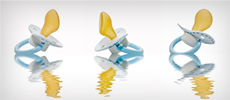Featured Posts

Health Blog
PHARMACEUTICAL CONSULTATION: HYPOTHYROIDISM
Farmacia Campoamor has detected in our patients affected by hypothyroidism high level of knowledge about the disease and about how to take the medication correctly. We are going to present all the information needed to easily understand what is this disease and the correct way to take the medication.
This information is based on bibliography and on the medication prospect. Please keep consulting directly your endocrinologist with any question.
Hypothyroidisms are not all the same (please ask your endocrinologist to inform you about the type of hypothyroidism you have) and though they are all usually treated with oral thyroid hormone (oral levothyroxine), depending of the type of hypothyroidism your doctor will give you different nutritional advices related to daily iodine intake, as it is necessary in some cases while in others is harmful.
HYPOTHYROIDISM: WHAT IS IT?
Hypothyroidism is a disease that affects the thyroid gland (situated in the anterior neck) and the gland does not produce enough thyroid hormones. All the body cells have thyroid hormone receptors, that are crucial in the cellular metabolism, therefore it is important that hormones are in the correct to be healthy.
The main cause of hyperthyroidism is thyroiditis (thyroid gland inflammation) that might usually be produced by a viral respiratory infection (like in subacute thyroiditis, usually reversible), by autoimmunity (autoimmune thyroiditis, in which the human body produces antibodies that attack the gland) or by pregnancy (postpartum thyroiditis).
Other less frequent causes than the above mentioned might also cause hypothyroidism:
- As a result of being treated with specific drugs, like lithium or amiodarone
- Thyroid gland congenital defect
- Neck or brain radiotherapy
- Thyroid gland surgical removal (partial or total)
- Sheehan's syndrome (illness that a woman might have if she bleeds a lot while giving birth, that causes pituitary gland's destruction)
- Pituitary gland tumor or pituitary gland surgery
In the last two cases, the cause of hypothyroidism has to be found in the hypophysis and this is due to the fact that the hypophysis produces the hormon dedicated to the control of thyroid hormones, called TSH.
Hypothyroidism, if treated, does not present severe problems for the patient, but it is extremely important to treat it correctly. The patient has to take the correct quantity of levothyroxine to keep hormones balanced and have a healthy metabolism.
HOW TO TAKE MEDICATION AND HOW TO TEST YOUR THYROID HORMONES
Blood analysis
To know the status of the patient with hypothyroidism, it is common to determine thyroid hormones levels (normally the "free" level of thyroid hormones: T4L and T3L) together with TSH level. If the result is normal, the patient will live a normal life correctly treated with levothyroxine. Blood analyses are usually carried out in basal conditions, meaning early in the morning and without taking levothyroxine, because after the patient takes the levothyroxine, it is transfered to the blood, producing a peek of concentration that might distort the results of the thyroid hormones concentration test.
How to take the medication?
To keep hormones balanced, it is very important to take them at the same time of the day and on an empty stomach.
It has to be on an empty stomach because we have to be sure that pill is correctly absorbed. It is usually recommended to take the pill in the morning (always follow your endocrinologist advice) on an empty stomach, together with a glass of water. Wait for at least half an hour before having breakfast to be sure that you took up the pill correctly and the hormons are totally transferred to the blood. If the pill is taken together with food or other medications, absorption might be reduced, making it harder to keep hormones level balanced. Also digestive or intestinal diseases like non-treated celiac disease may reduce this absorption.
If you are already taking other medication, you must inform your endocrinologist because there might be a direct interaction with tiroxine absorption, that can be read on the leaflet. Here it is a list of medicines that can have an interaction with thyroid hormones: Contraceptive Pills, Clofibrate, Estrogens, Methadone, Raloxifene, Tamoxifene, Amiodarone, Anabolic Steroids, Androgens, Anti-thyroid drugs, Barbiturates, Carbamazepine, Glucocorticoids, Interferon alfa, Interleukin 2, Lithium, Phenytoin, Propranolol or Rifampicin.
*This is general information and you must follow your endocrinologist instructions. Please ask your doctor about the type of hypothyroidism you have, how to take the medication, how you must be prepared for your blood tests and which diet recommendations might be useful in your case.
Amapola Munuera
MSc in Pharmacy
References:
http://www.nlm.nih.gov/medlineplus/spanish/ency/article/003517.htm
http://www.nlm.nih.gov/medlineplus/spanish/ency/article/003684.htm
http://www.nlm.nih.gov/medlineplus/spanish/ency/article/000353.htm




